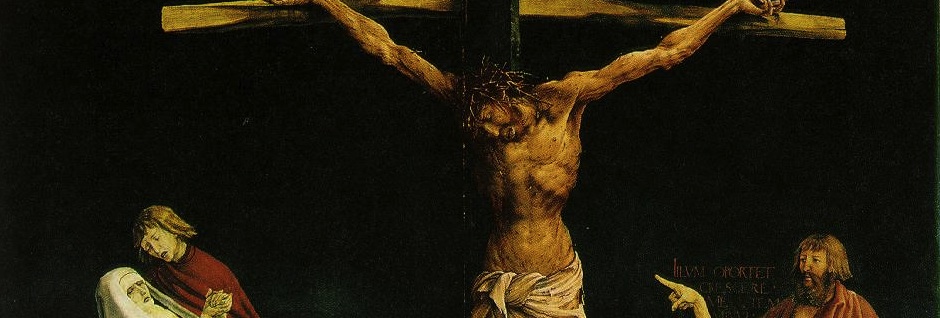Manifesto
We seek an evangelical Lutheran fellowship of confessors (ordained and non-ordained) committed to Luther’s radical affirmation: “the CROSS alone is our theology”
Thus we embrace the tradition of the “theology of the cross” (theologia crucis)
- That Thin Tradition which sounds as an antiphon beneath the high triumphal song* of Christendom’s Great Tradition
This theology of the Cross begins in a great refusal* and critique:
- the rejection of all theologies of glory (theologia Gloria) and the subsequent critique of all institutions and practices
Therefore a Theologian of the Cross rejects:
- any authority
- which claims unequivocally to manifest the will of God through legislative, hierarchical, institutional, or coercive means
- which claims to possess the endorsement of the Holy Spirit upon any human endeavor or decision—individual or corporate
- which claims the imitation of Christ as justification for its actions
- all attempts to manifest the hidden character of the Christian life visibly through
- the establishment of a superior moral life
- the enactment of a righteous political agenda
- the endorsement of a particular personal piety
- those institutions which
- Identify themselves unequivocally with the true church of Christ
- claim themselves to be a visible manifestation of the kingdom of God
- invest in themselves and their legislative or bureaucratic hierarchies the right to define “holiness”
And a Theologian of the Cross embraces:
- the foolish authority
- of preaching the Word of God as Law and Gospel
- of forgiving sins unconditionally as Christ did from the cross
- of suffering the will of God to be done unto one in the crosses of daily life and its callings
- the hiddenness of God (Deus absconditus/Deus revelatus)
- within the ambiguity of creation wherein the “unpreached God” works both weal and woe inexorably in all things
- under the sign of the opposite, that is, the spectacle of Christ crucified and the experience of the Christian suffering in the world, wherein the “preached God” is revealed
- beneath the equivocal human emotions (the anfechtung) of faith and unbelief, trust and doubt, and hope and despair wherein the presence of Christ and his faith is established by the Holy Spirit as a redeeming reality
- that ecclesial institution which
- recognizes itself as established by the law and not as a creature of the Gospel
- witnesses to the reality of this world where Christ’s church co-exists indistinguishably with the Devil’s chapel
- makes no claim that its actions—other than proclaiming God’s Word—are unequivocally the will of God
Thus, the substance (and glory) of the Christian life is to be humbled—to be crucified with Christ
- a being humbled such that
- Jesus Christ cannot be used in service to the law, rather he brings the law to its end and holds it in its proper place
- one lives under the SOLAs of the Wittenberg reformers: Christ Alone, Word Alone, Grace Alone, Faith Alone, Cross Alone—with those meant categorically
- one is a beggar who must receive life daily from the neighbor—not just life in this world but life in the kingdom to come as well
Daily, we must beg from the neighbor to share in the gifts of this creation by participating in our lawful vocational duties. Daily we must beg the neighbor for a merciful word of Gospel so that we would have Christ and the new creation.
So, for the time being, we live as beggars—totally dependent on the neighbor to provide God’s providence and to preach the gospel of Christ: the terrible humility of having life only as it is given—never as we would claim—only as its given by the neighbor and by Christ.
* Douglas John Hall in “God and Human Suffering” & “The Cross in Our Context”


